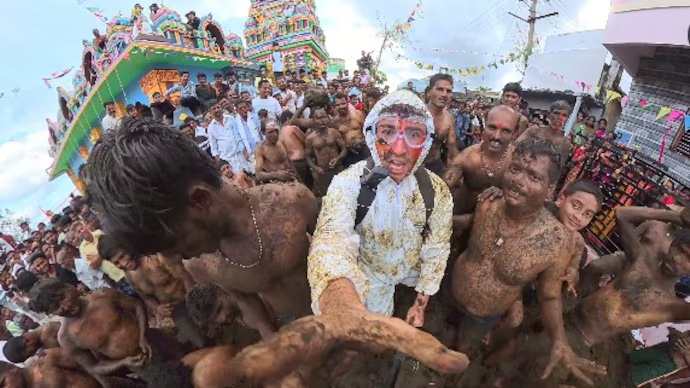Now Reading: Russian Woman Found Living in Gokarna Cave With Daughters Sparks International Custody Dispute
-
01
Russian Woman Found Living in Gokarna Cave With Daughters Sparks International Custody Dispute
Russian Woman Found Living in Gokarna Cave With Daughters Sparks International Custody Dispute

A Russian woman living with her two daughters in a cave near Gokarna, Karnataka, has become the center of a custody battle involving Indian and Russian authorities. What started as an unusual lifestyle choice is now a full-blown legal and diplomatic case, raising questions about parental rights, child welfare, and international law.
The Discovery in Gokarna
Local police and child protection officials were alerted after tourists reported a foreign woman and two young girls living in a cave near the temple town. When authorities arrived, they found the Russian woman and her daughters surviving without basic amenities, yet appearing physically healthy.
The woman claimed she was living a peaceful, alternative lifestyle, away from modern distractions. However, officials expressed concerns over the children’s safety, hygiene, and education.
The Legal Twist
Things escalated after it was revealed that the woman is in an ongoing custody dispute with her ex-husband in Russia. According to initial reports, he had been trying to locate the children for over a year.
Once the case reached the attention of the Russian consulate, diplomatic channels were activated. The matter is now being reviewed by Indian child welfare agencies and the Ministry of External Affairs.
Voices and Views
Local residents had mixed reactions. Some saw the woman’s lifestyle as spiritual and voluntary, inspired by Gokarna’s reputation as a retreat for foreign travelers. Others were uncomfortable with minors being raised in such conditions.
Experts in child rights argue that while parental freedom is important, the well-being and safety of children must come first. The fact that both Indian and Russian authorities are now involved suggests the case could have broader implications.
Relevance for Tier 2 and Tourist Towns
Places like Gokarna attract not just tourists, but long-term spiritual seekers and foreigners looking to live outside conventional systems. With more such stories emerging across India—from Rishikesh to Hampi—this case might push local administrations to rethink how such settlements are monitored, especially when children are involved.
Conclusion
What began as an unusual personal choice has now turned into an international custody and legal debate. The final decision will likely balance cultural freedom with the core responsibilities of parenting. As the legal process unfolds, the focus remains on ensuring the best interest of the children involved.

























